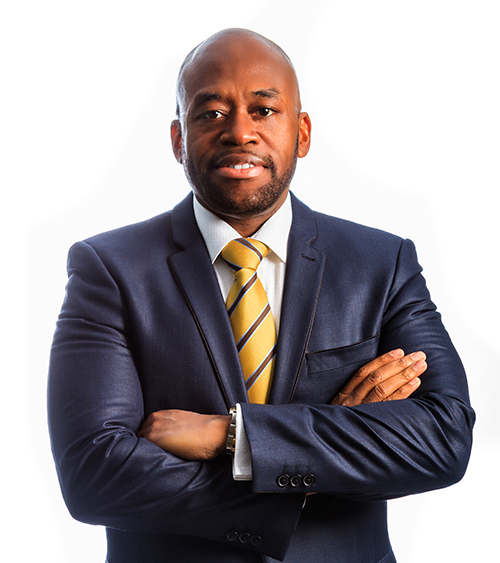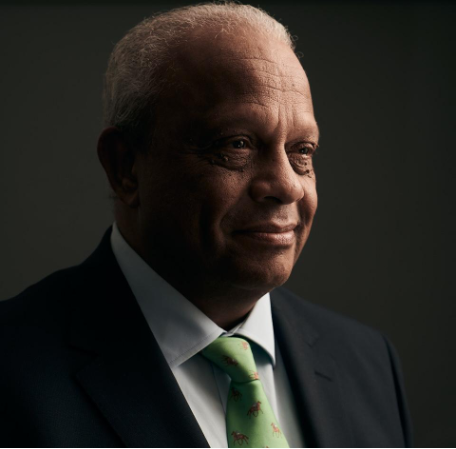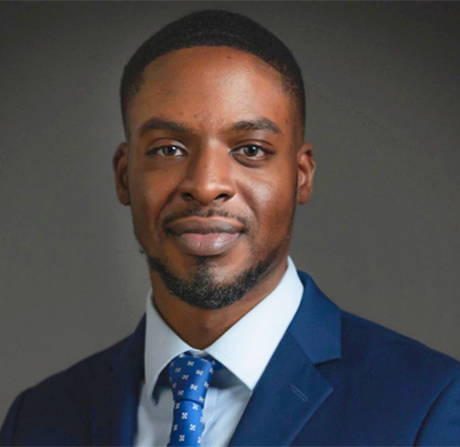Black History Month: Proud to be...
21 October 2021
The theme for this year’s Black History Month celebration is ‘Proud to be…’ To mark the occasion, we asked GGI colleagues, friends and associates what they are proud to be.

Nahida Abdulhamid – research and policy analyst intern at GGI
I am proud to be…disrupting and taking up space (well at least trying). Growing up in Britain, as a Muslim, brown, female I was always made to feel that I did not ‘belong’. To belong meant to be of the white dominant culture. The prevalence of micro-aggression is a daily reminder of this. For example, “where are you really from?” or “why are you getting so angry?”. I don’t get the space to express my emotions without being perceived as negative or threatening. Or being mistaken for someone else, particularly if there is only a handful of people of colour at your workplace. This might not seem harmful but it sends the message that you’re not viewed as an individual, rather a group.
However, I know there are people who have endured more than me, who have spent their lives fighting for equal rights, who have been subject to violence, abuse and harassment for simply demanding that we be treated as equals, with dignity and respect. This alone motivates me to continue the fight by taking up space and disrupting.
How do I do that? With my peers I have taken over the Atlantic history gallery in the Greenwich Maritime Museum and we’ve tried to reclaim the narrative from a black/African perspective. And I make a point of physically entering spaces which seemingly ‘belong’ to white people, to speak up against racism and islamophobia.
Black History Month is important because it highlights the many fantastic contributions from the community to the development of society. Celebration and encouragement of diversity and inclusion is important. However, we must ask ourselves: if this does not lead to the transformation of the society and political structures that enable racism, what is the point?

Anita Day – Vice Chair, Worcestershire Acute NHS Trust
I am proud to be the daughter of immigrants. My father came over in the 1950s after a six-week journey on a cargo ship, and arrived in London a graduate with nothing but £10 in his pocket, the sharpest mind I’ve ever known and a determination to make something of himself. The London he discovered was one in which racism was explicit and everywhere. He remembered the ‘No dogs, Blacks or Irish’ signs in the windows of boarding houses when he was looking for somewhere to live- and he struggled to find someone willing to give him a job.
But he persevered. My mother joined him, they married and became British citizens and they eventually built professional, middle-class lives. That didn’t mean racism didn’t continue to affect them. Every small piece of recognition, reward or respect was hard-won. My mother was sacked from one job when she became pregnant with me because the boss didn’t want problems with ‘you people having babies all the time’ (I was the first of her two children).
The first time I was aware of experiencing racism was at the age of six, when a piano teacher refused to give me lessons because ‘my hands weren’t designed to play the piano’ before I’d even sat down on his piano stool. As children growing up, we knew that our parents were sometimes homesick but had no comprehension of the tenacity, resilience and courage it had taken for them to forge the new lives we took for granted. It takes a special kind of person to travel half-way around the world to make a better life for themselves and their families. I never told them how proud I was of them… I wish I had.

Romeo Effs – founder & CEO, Lumorus Plc; Chairman, Naseberry Capital; Chairman, Wandsworth Oasis charity
I am proud to be a Black, African-Caribbean-Jamaican change-maker. At my core is being authentic and vulnerable, and embracing all of humanity. I am proud to have been raised by two phenomenal women – my mother Inet Effs and my grandmother Iris Bruff – both of whom instilled in me the need to offer value and create amazing in all I do, and to be selfless, open and transparent for the good of those I serve. I am proud to be considered as someone who is bold, innovative and disruptive, who questions the status quo and is unafraid to stand up for equity in all its forms – human rights, justice and everything that is right, just and ethical.
I am proud to be a father, mentor, son, grandson, brother and friend who supports, encourages and provides a shoulder to lean on.
I am proud to be the leader of a business with an amazing diverse team, who believes that businesses and their leaders should be at the service of those they lead and those who use their products and services, while defending human dignity and protecting the environment; being a source of good in this world.
But mostly, I am proud of all those who have gone before me, who have paved the way to make my journey easier. I am proud to call them trailblazers, stalwarts, freedom fighters, advocates, heroes and, most of all, ancestors. Without them, I and so many others would not have the freedom, the drive and tenacity to continue the work they started, carry on their legacy, create new pathways for my children, nieces, nephews and all those behind us, leaving a breadcrumb trail that they can follow to continue to make this world a better place.

Simon Fanshawe – partner Diversity By Design, author of The Power of Difference (published on 3 December)
In Black History Month it’s vital to not let slip from our consciousness the racism experienced by the Windrush Generation, the murder of Stephen Lawrence and too many others, and the indignities that may no longer be all-day events but which are still everyday events.
But recently, too many, mainly middle-class white people have seemed to respond, rather than by celebrating the achievements of Black and Asian people in Britain, instead by buying the books and indulging themselves in magnificent feasts of guilt in order to congratulate ourselves on being what, in the jargon, is called a ‘good ally’.
But what should white people be doing in Black History Month? The first thing is to remember that it’s not about us; it’s not about our guilt. It’s about the possibility of celebrating difference with people we know and work with. It’s an opportunity to reject the undynamic, too-current idea that black people are the eternal victims of a racism that will never end and we the perpetual perpetrators, in favour of working together for change. Through different cultural, personal and family histories, it's a chance to see into other lives and find energy in our partnerships. It offers us all the possibility to widen our horizons through listening and discovery.
As Toni Morrison said on the publication of her 1987 novel Beloved, “I really think the range of emotions and perceptions I have had access to as a black person and as a female person are greater than those of people who are neither.... So it seems to me that my world did not shrink because I was a black female writer. It just got bigger.” Black History Month offers us all the opportunity for all our worlds to get bigger if we work together.

Lord Hastings of Scarisbrick – former global head of corporate citizenship for KPMG International and head of public affairs at the BBC
Since my youngest days I have been committed to speak for and empower the poor. My pride is in all those who have championed the cause of the world’s most vulnerable. Those who fight day in, day out for freedom and justice and who took seriously the challenge of the sustainable development goals and therefore the huge positive in seeing the massive drops in global poverty and the advances in sanitation, education, housing and maternal security and gender equality.
I’m proud that a more sensitive world cares more deeply about the environment and the destitute and refugees and we are being forced to see what we wish we could avoid, and made to act for future generations. I’m proud of my opportunities to serve UNICEF and One Young World and ZANE and Tearfund and the Africa Philanthropy Forum and the Vodafone Foundation. All of them are generous to the poor and all are central to the mission we must hold central to our energy: to give to those who deserve dignity and freedom.
And I’m proud of all the men we get to serve in the prisons we work in as volunteers and to showcase their lives as positive people I have come to love and trust – for no one is defined by their past, only by their movement to the future.

Emmanuel Ofosu-Appiah – UK PR manager and diversity champion, Mercer
I am proud to be a change maker and passionate advocate for diversity in the PR and communications industry. I am also proud to be the first person in my immediate family to attend a Russell Group University and successfully graduate. I am a champion of diversity and inclusion and have campaigned for equality for Black, Asian and Minority Ethnic (BAME) professionals within my industry for several years. As a result of this, I have been given the opportunity to sit on various boards and I am now currently board member of the PRCA’s Race & Ethnicity Equity Board, board member of The London Chamber of Commerce & Industry Black Business Association, and board trustee at South Quay College.
I am hoping that my journey can inspire others like myself from diverse backgrounds to push to reach their full potential.

Adanna Emeka Oji – Programme Assistant, GGI
I was born and raised in Nigeria, which happens to be the country with the biggest population of black people in the world. It’s said that one in three black people you’ll find anywhere in the universe is Nigerian.
In primary school we were taught about black history. This included stories of colonisation, slavery and racial discrimination. I never really understood the sensitivity and seriousness of conversations about race until I relocated to the west and saw that they were at the forefront of social debate.
The phrase ‘white privilege’ suggests that white people enjoy certain privileges that are not available to black people. I believe it’s time to put this narrative behind us because even though there is undoubtedly still discrimination, we have seen a lot of black people rise from nothing to positions of power – including the likes of Barack Obama and Ngozi Okonkwo-Iweala, the Nigerian Director General of the World Trade Organisation.
Black History Month should be a celebration of the exploits of people of black origin and their rich history, especially those who have risen from the shackles of slavery in generations gone to become figures of relevance. It is a powerful opportunity to show solidarity and champion great achievements, as well as to put forward the vision and demands for change that extend beyond just a single month.
I am proud to be working with some amazing people at GGI, which is an organisation committed to making changes and empowering not just its employees but also its clients, who are of course of diverse cultures and ethnicity.
To me, BHM is an opportunity for people to find out more about who I am and understand what it’s like to be in my skin.

Danielle Oum – Chair, Birmingham and Solihull Mental Health NHS Foundation Trust
I’m proud to be…still going strong. I think that’s a triumph in itself and certainly something to celebrate. I grew up in an overtly racist society. When I was young, we had windows smashed, dog mess put through our letter box and there was racist graffiti everywhere.
As I grew up and started rising through the ranks, the racism became more subtle but it’s never gone away. When I attend meetings, I’m still regularly asked to set out the teas and coffees by people who are making lazy, racist and sexist assumptions. But I’ve also been able to make change happen by encouraging people to talk and share their stories. I think this really galvanized change in Walsall. People became more inclined to talk about racism in our staff survey and that made it harder to ignore.
Organisations must constantly challenge themselves to improve their performance on equality, diversity and inclusion – not as some sort of badge of honour but as a basic function. We must all work to address disparities by collecting the right data, analysing it and then taking the appropriate actions. We must apply measurable performance criteria to our performance on EDI and then truly hold ourselves to account.
In the US Navy, if a suitably qualified black candidate for a role is not appointed, the recruiting officer must write a report that explains why. It’s galling that measures like this are necessary – and it’s a travesty that we need Black History Month – but sadly we do.
